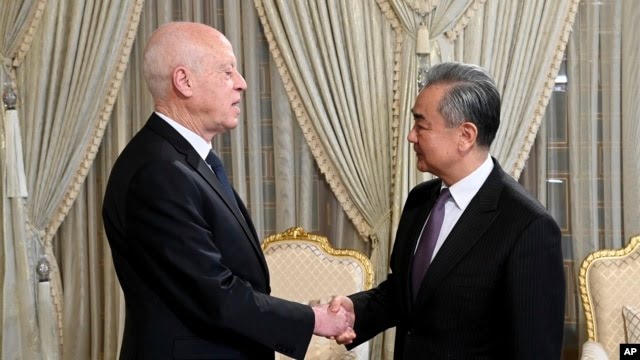Chinese Foreign Minister Wang Yi embarked on a diplomatic tour across Africa, with particular emphasis on North and West African nations.
The choice of Egypt, Tunisia, Togo, and Ivory Coast indicates Beijing’s current foreign policy objectives and a desire to play a more significant role in mediating the Israel-Palestine conflict.
The tour kicked off in Egypt, a key player in Middle East politics. Wang advocated for a peace conference on the Gaza conflict and proposed a timetable for implementing a two-state solution.
He also expressed concern about escalating tensions in the Red Sea, following attacks on cargo ships by Yemen’s Houthi rebels in protest against Israel’s actions. The disruptions to global commerce prompted U.S. and U.K. forces to respond, raising concerns about the potential for a regional war.
Analysts view Egypt as a strategic first stop due to its proximity to the Israel crisis and the Red Sea shipping crisis, making it a pivotal player in reducing tensions. China has invested significantly in Egypt through its Belt and Road Initiative, contributing to infrastructure development and solidifying bilateral ties.
The subsequent destinations, Tunisia, Togo, and Ivory Coast, are strategically chosen as they are areas experiencing a decline in Western influence.
Tunisia faced a dispute with the European Union over a financial aid package aimed at curbing migration to Europe. Togo and Ivory Coast, located in West Africa, have been severing ties with former colonial power France, presenting an opportunity for China to make inroads.
Experts suggest that China sees an opening in the escalating anti-French sentiment in the Sahel region, with West Africa experiencing a decline in Western influence and an increase in Russian involvement. Despite recent military coups in the region, China has maintained strong ties with the governments in place.
The diplomatic tour also coincides with significant events in Africa, including the Non-Aligned Movement summit in Kampala and the Africa Cup of Nations in Ivory Coast. China’s engagement in the region goes beyond diplomacy, with a focus on infrastructure projects like stadium construction, reflecting its Belt and Road Initiative’s broader goals.



